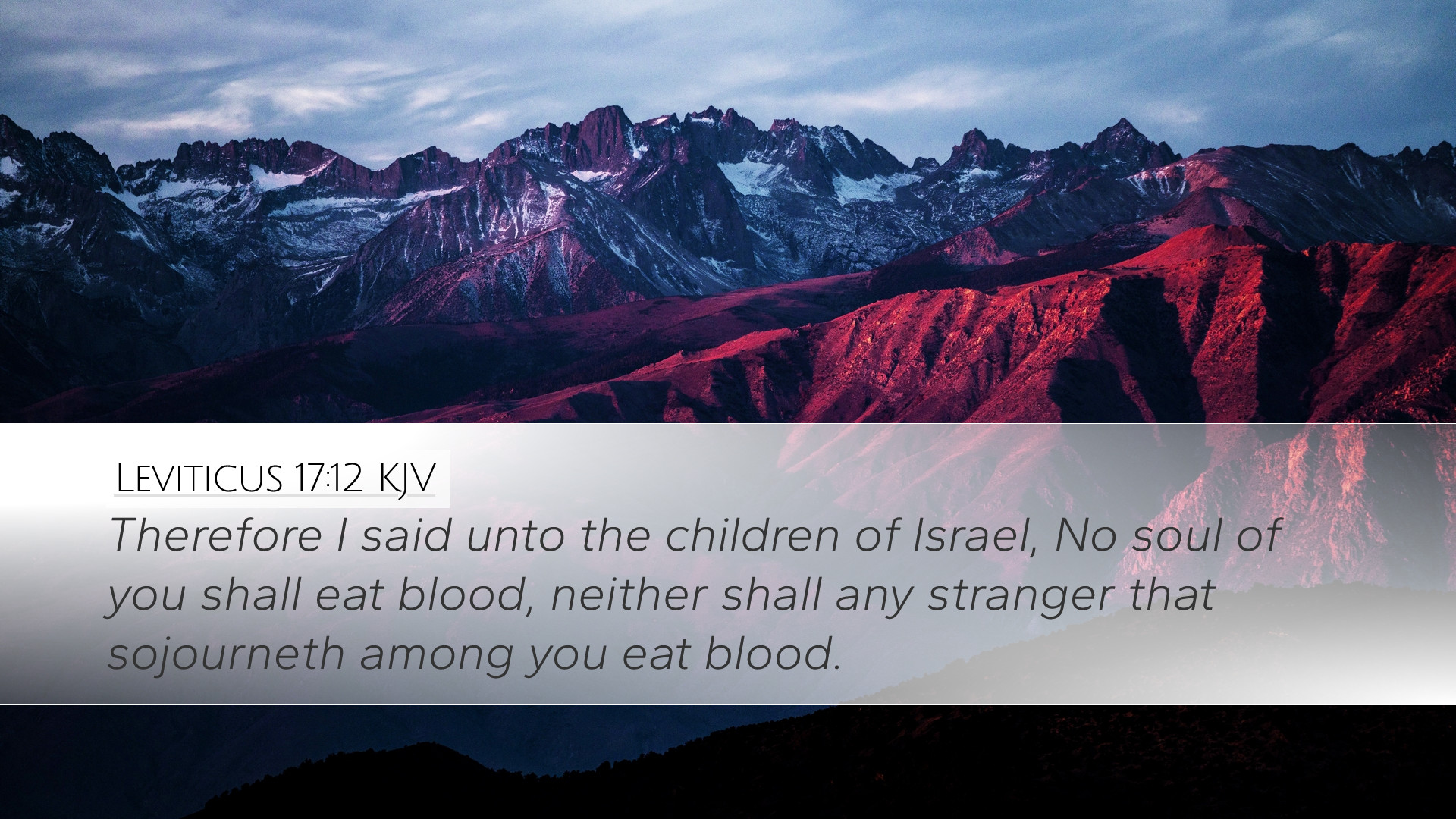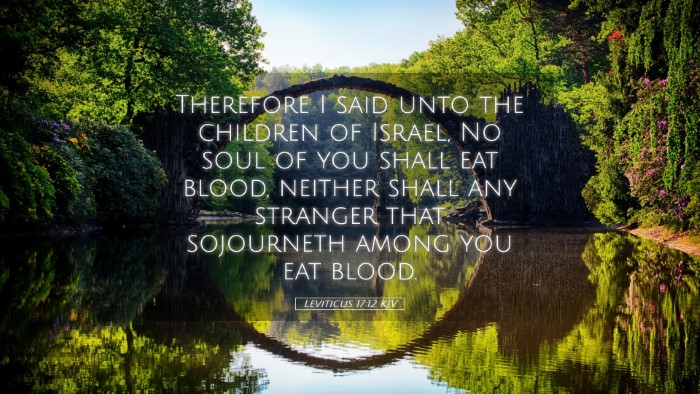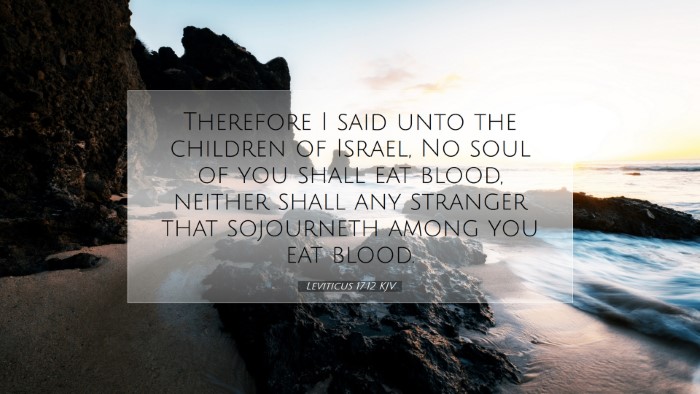Commentary on Leviticus 17:12
Verse Context: Leviticus 17:12 states, "Therefore I said unto the children of Israel, No soul of you shall eat blood, neither shall any stranger that sojourneth among you eat blood." This verse addresses the prohibition of consuming blood, which is a significant theme throughout the Mosaic Law.
Exegesis and Theological Insights
Significance of Blood: Blood is a central motif in both the Old and New Testaments, often symbolizing life, sacrifice, and atonement. The prohibitions against consuming blood highlight its sacredness as it is associated with life. Albert Barnes notes that blood represents the "life of all flesh," and thus its consumption is a direct affront to the sanctity of life that God grants to His creation.
Divine Command and Obedience: The command given to the Israelites is a reflection of God's desire for His people to maintain holiness and distinction from other nations. Adam Clarke emphasizes that the blood is a significant element in the sacrificial system, which anticipates the ultimate sacrifice of Christ. The act of not consuming blood affirms the covenant relationship between God and His people, establishing standards for their conduct, which are essential for communal and spiritual integrity.
Covenantal Identity: Matthew Henry notes that the avoidance of blood consumption distinguishes the Israelites from surrounding Gentile nations, underscoring their unique covenant identity. This concept of being set apart is crucial as it not only shapes their practices but also their understanding of God’s holiness. The law is not merely a set of rules but is deeply rooted in their identity as God’s chosen people.
Practical Implications for Believers
Understanding the Role of Blood: This verse serves as a reminder for Christians of the New Testament that the blood of Christ fulfills the deeper meanings behind the Old Covenant. As affirmed in Hebrews 9:22, "without the shedding of blood there is no remission." The sacredness of blood in Leviticus highlights the ultimate sacrifice made by Christ, a theme that pastors and theologians should emphasize to show continuity in God’s plan for redemption.
Holiness and Distinction: For modern believers, the call to avoid consuming blood metaphorically relates to the need to abstain from practices that lead to spiritual death or compromise one's faith. The implication here encourages a lifestyle of holiness, where followers of Christ remain distinct in their moral and ethical choices, just as the Israelites were to maintain a distinct identity.
The Importance of Obedience: For pastors and leaders, the call to adhere to God's commands remains crucial. The narrative surrounding Leviticus 17:12 serves as a foundation for teaching about obedience to God’s word as an expression of faith and reverence. The emphasis on dietary laws illustrates a broader principle of submitting to God's will in every aspect of life.
Broader Biblical Themes
- Life and Sacrifice: Blood signifies life; thus, its prohibition elevates the seriousness of sacrificial practices. Consumption of blood is viewed as discordant with the covenant requirements, reinforcing the theme of sacrificial atonement.
- Holiness and Community: The laws regarding blood promote a sense of unity within the community of Israel, as shared practices underpin collective identity.
- Typology of Christ: The Old Testament foreshadows the New Testament realities, where Christ's blood becomes the basis for salvation. The restrictions point towards the coming ultimate sacrifice which provides atonement for sin.
Conclusion
In conclusion, Leviticus 17:12 invites deep reflection on the significance of life, sacrifice, and the covenant relationship between God and His people. Through careful examination of this verse using insights from public domain commentaries, we find rich theological meanings and practical implications for modern believers. As we study and teach this passage, we are reminded of the core message of holiness, obedience, and the continual relevance of God's law in shaping our lives and communities.


